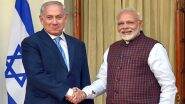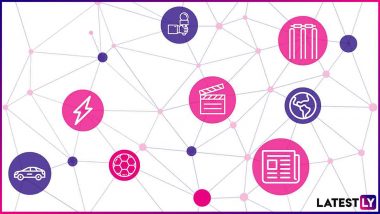New Delhi [India], February 6 (ANI): With the aim of achieving universal access to equitable, affordable, and quality healthcare services, the Ministry of Health & Family Welfare of the Government of India has implemented several schemes and initiatives.
According to a release from the Ministry, these endeavors focus on improving health infrastructure in rural areas, ensuring the availability of adequate human resources, and enhancing access to quality healthcare, especially for underserved and marginalized groups.
Among the key schemes being implemented are the National Health Mission (NHM), Pradhan Mantri - Ayushman Bharat Health Infrastructure Mission (PM-ABHIM), and Pradhan Mantri Swasthya Suraksha Yojana (PMSSY).
These initiatives receive technical and financial support from the Union Government to bolster healthcare infrastructure across the nation.
Also Read | Delhi Shocker: Man Slashes Friend's Throat With Broken Glass Bottle in Vasant Vihar Over Rs 1,500 Debt.
Under the National Health Mission, significant allocations have been made for infrastructure strengthening in rural areas.
The State-wise data for SPIP (State Program Implementation Plan) approvals and expenditure for FY 2022-23 and 2023-24 highlights the substantial investments made to enhance healthcare facilities at the grassroots level.
States like Bihar, Odisha, Uttar Pradesh, and Maharashtra have witnessed substantial allocations to bolster healthcare infrastructure and services.
Similarly, the Pradhan Mantri - Ayushman Bharat Health Infrastructure Mission (PM-ABHIM) aims to further strengthen healthcare infrastructure with a total outlay of Rs 64,180 Crores for the scheme period (2021-22 to 2025-26).
SPIP approvals and expenditure under PM-ABHIM for FY 2022-23 and 2023-24 demonstrate the concerted efforts to upgrade healthcare facilities and services across various states and union territories.
Additionally, the government has undertaken initiatives like the India COVID-19 Emergency Response and Health System Preparedness Packages (ECRP-I and ECRP-II) to combat the challenges posed by the COVID-19 pandemic.
These schemes focus on accelerating health system preparedness, including infrastructure development for pediatric care, to effectively respond to the pandemic.
Furthermore, the Fifteenth Finance Commission (FC-XV) has recommended grants amounting to Rs. 70,051 crores for specific components of the health sector through local governments.
These grants aim to strengthen the health system at the grassroots level over a five-year period, facilitating equitable access to healthcare services.
The Pradhan Mantri Swasthya Suraksha Yojana (PMSSY) focuses on correcting regional imbalances in the availability of tertiary healthcare services and augmenting facilities for quality medical education.
Similarly, efforts are underway to establish nursing colleges and increase MBBS seats in existing medical colleges, further enhancing the healthcare infrastructure and human resource capacity in the country.
Bharati Pravin Pawar, Union Minister of State for Health and Family Welfare, highlighted these initiatives in a written reply in the Rajya Sabha today, reaffirming the government's commitment to ensuring universal access to quality healthcare for all citizens. (ANI)
(The above story is verified and authored by ANI staff, ANI is South Asia's leading multimedia news agency with over 100 bureaus in India, South Asia and across the globe. ANI brings the latest news on Politics and Current Affairs in India & around the World, Sports, Health, Fitness, Entertainment, & News. The views appearing in the above post do not reflect the opinions of LatestLY)













 Quickly
Quickly


